All The Queens Men on the poetics of partying
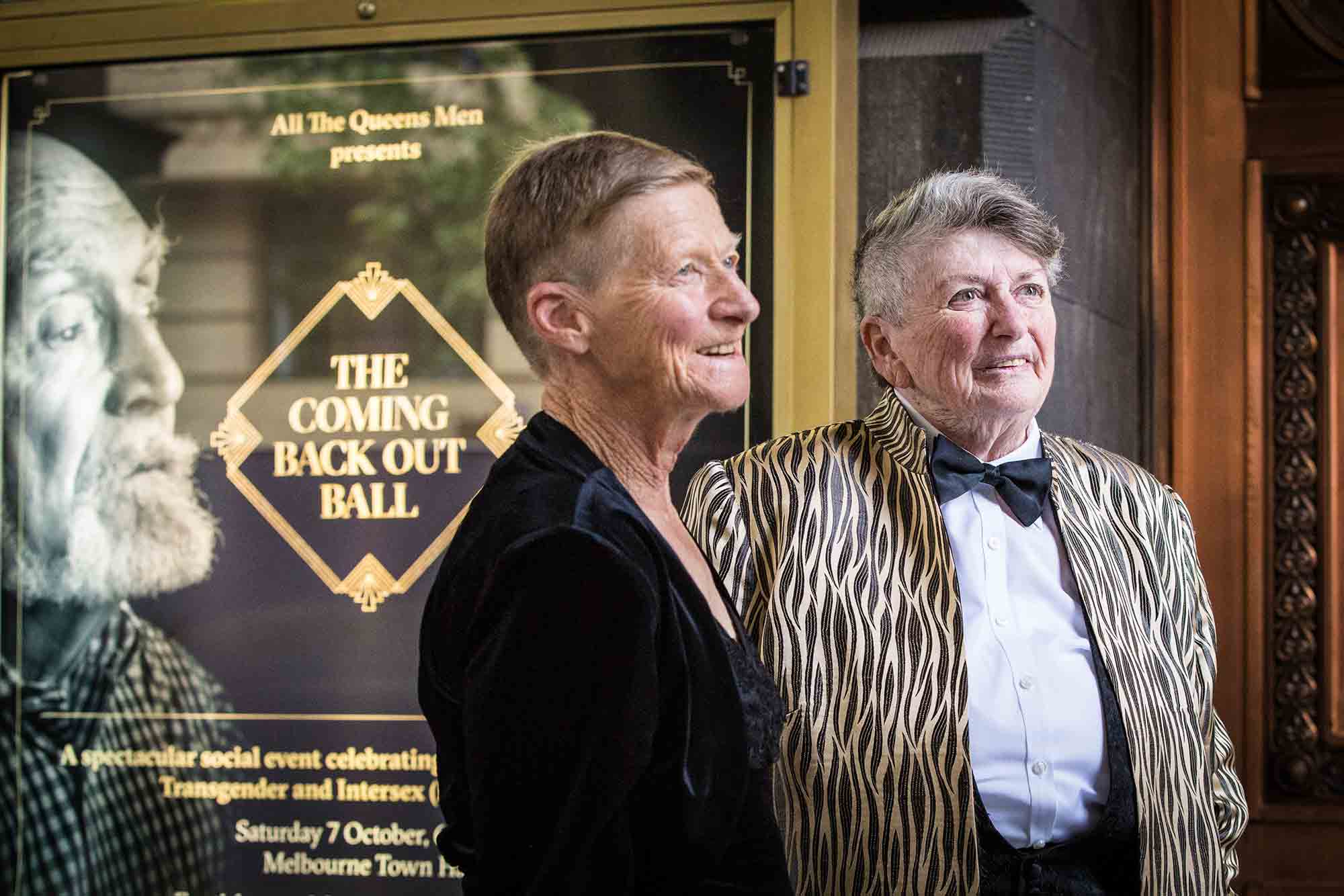
Welcome to LGBTI Elders Dance Club, held once a month at Fitzroy Town Hall. It is wheelchair-accessible, comes with free afternoon tea, and no dance experience is needed. The entry is free to anyone over 65 years of age, and some participants are well into their eighties. Created by Tristan Meecham, Bec Reid and Andrew Westle, it is art, but it could well be a social service.
Meecham and Reid, who together run All The Queens Men, the arts company responsible for LGBTI Elders Dance Club, come from the world of experimental performance. Their other works are staged in theatre spaces, and they maintain vibrant solo practices. Yet their latest works are drawing in a distinctly non-arty crowd, and are no longer reviewed as theatre shows.
“We always talk about how art changes lives, but I started to wonder if there was a way to do it more directly,” says Meecham. “We assume that it is the audience that needs to come into the spaces of art, but I started to ask whether we, as artists, would be more successful in changing lives if we went out of these exclusive, venerable art spaces and met people in their ordinary, everyday space.”
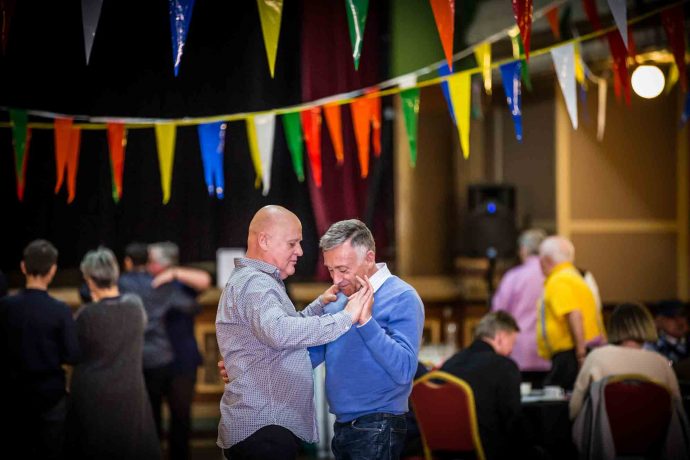
It all started almost ten years ago with Fun Run, a free-rolling durational one-man show, performed in main squares around the world. A five-hour treadmill marathon performed by Meecham himself – a reference to the first marathon runner, the Greek messenger Pheidippides – and supported by a vast sideshow of community groups, cheerleaders and flash mobs, with confetti and music and champagne at the end. It may sound opaque on the page, but in central public spaces (the first Fun Run took place in Melbourne’s City Square) the show came to life as a bizarre, flamboyant, community-activating extravaganza of joy.
Fun Run became a rollicking, travelling success, growing with each iteration, until in 2015 Meecham performed in the vast central square in the South Korean town of Ansan, only a year after a ferry disaster claimed the lives of 250 local children.
“We performed at the first iteration of the Ansan Street Arts Festival after the tragedy had struck the community, almost a year to the date,” Meecham says. “Hundreds of local community groups participated, with an audience of thousands. And something happened: this run, a literal staging of an immense feat of endurance, was no longer about my journey as a gay man, but acquired a wholly new meaning for this city coming out of profound grief.”
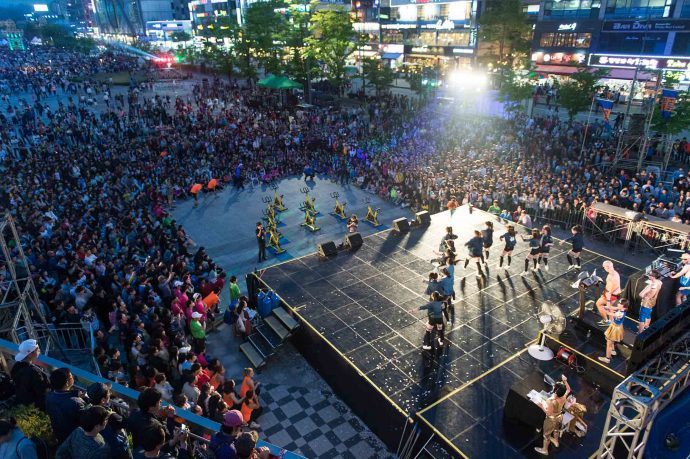
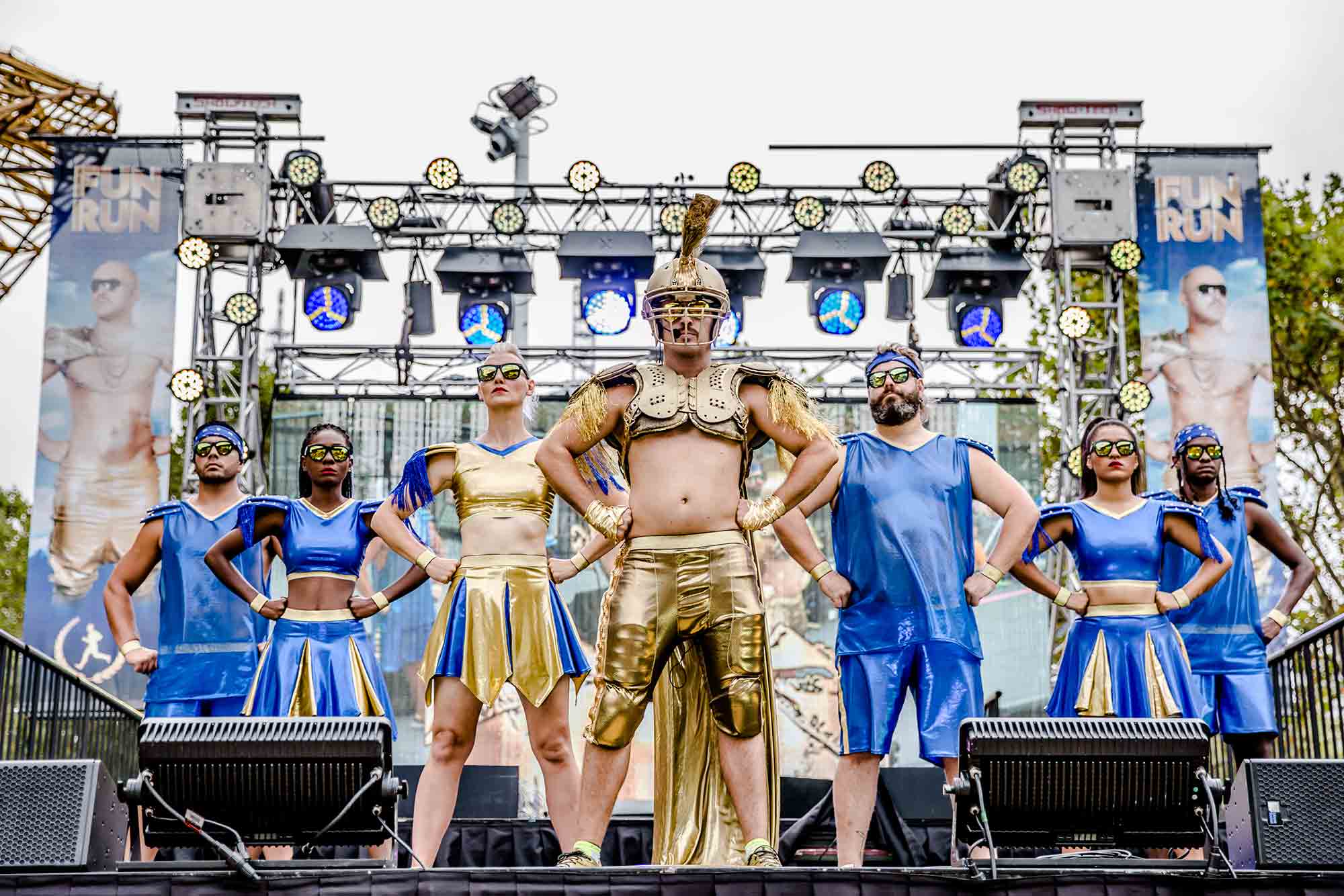
To truly bring people together with a sense of fun and community, Meecham’s art relies on a sense of spectacle, as well as the joyous occupation of our most central public spaces: “It absolutely needs to be in a thoroughfare. The one time Fun Run was programmed in a hard-to-find space was the only time the show didn’t quite soar. Our projects need the market square.”
In 2014, Meecham was awarded professional development support which took him to the UK, where he was profoundly inspired by Duckie, an arts organisation that has been running an LGBTQI club night at south London’s Royal Vauxhall Tavern every Saturday since 1995. Mixing up DJ sessions with live music and theatre performance, Duckie is a blend of high and low art, commercial and indie. It is unpredictable and inclusive and, as the years go by and new audiences join the old, it has become a cross-generational meeting place.
“We believe that art and performance can be used as tools to bring about community solidarity, to make ordinary people happy and even for personal development and recovery for the most vulnerable amongst us,” reads Duckie’s manifesto. “We use popular forms of entertainment, volunteer participation and the poetics of partying to make our shows accessible to communities that are marginalised from society.”
What Meecham found most inspiring about Duckie was a commitment to regularity. “They decided to always be there on a Saturday night, on the upper floor of a pub. By doing so, they created an anchoring space, a meeting point for the queer community.” He had found his model: art that truly met life halfway.
LGBTI Elders Dance Club is unapologetically modelled on Duckie: once a month, without fail, it provides a safe, inclusive, open space in which elderly couples can dance and have fun, without fear of being exposed – inevitable on any other dance floor. As participant Annika Deutsch commented in a Channel 9 feature on the project: “It can be pretty uncomfortable dancing with your female partner at a straight, ballroom dancing scene.”
“We committed to being there every month, even though it was terrifying to think that we might be committing the rest of our lives to this project,” Meecham laughs. “And it worked. The first Sunday, we had three participants – and we had to Uber them ourselves. Today we have a community.” More than 50 guests attend LGBTI Elders Dance Club every month.
Meecham has been passionate about the well-being of LGBTI elders since 2008, when he first came across reports that revealed some nursing homes were not catering for elderly LGBTI people. They often reverted to being quiet about their sexuality in the company of their elderly, often conservative, peers – effectively going back into the closet.
“We have our current rights and privileges because the previous generations have blazed the trail before us,” he says. “These are people who have lived through the HIV crisis, who risked criminal convictions for being gay, or hospitalisation, who suffered tremendous rejection from family and friends – and at the end of a lifetime of discrimination, they are again not cared for.
“What’s more, elderly LGBTI people are much more likely to experience social isolation than their straight counterparts, without the support of traditional family structures. We want to create intergenerational connections and family in the queer sense of the word – a family you create, rather than are born into.”
As the world is getting more comfortable with the idea of equal rights for LGBTI citizens, there is growing interest in their particular needs for services and infrastructure. In recent years, policy-makers have increasingly recognised that LGBTI elders have smaller savings due to persistent discrimination that has reduced their lifelong earning capacity, and often lose their home after the death of a life partner whom they were legally prohibited from marrying. A history of trauma and exposure to violence complicates their health in old age, and persistent homophobia influences the likelihood of receiving inadequate care in health and other public institutions. And while studies indicate that LGBTI persons encounter discrimination in healthcare settings, a report by UK-based Stonewall also shows that they are disproportionately in need of aged care: older gay and bisexual people are much more likely to live alone, have no kids or grandchildren, and lack family support.
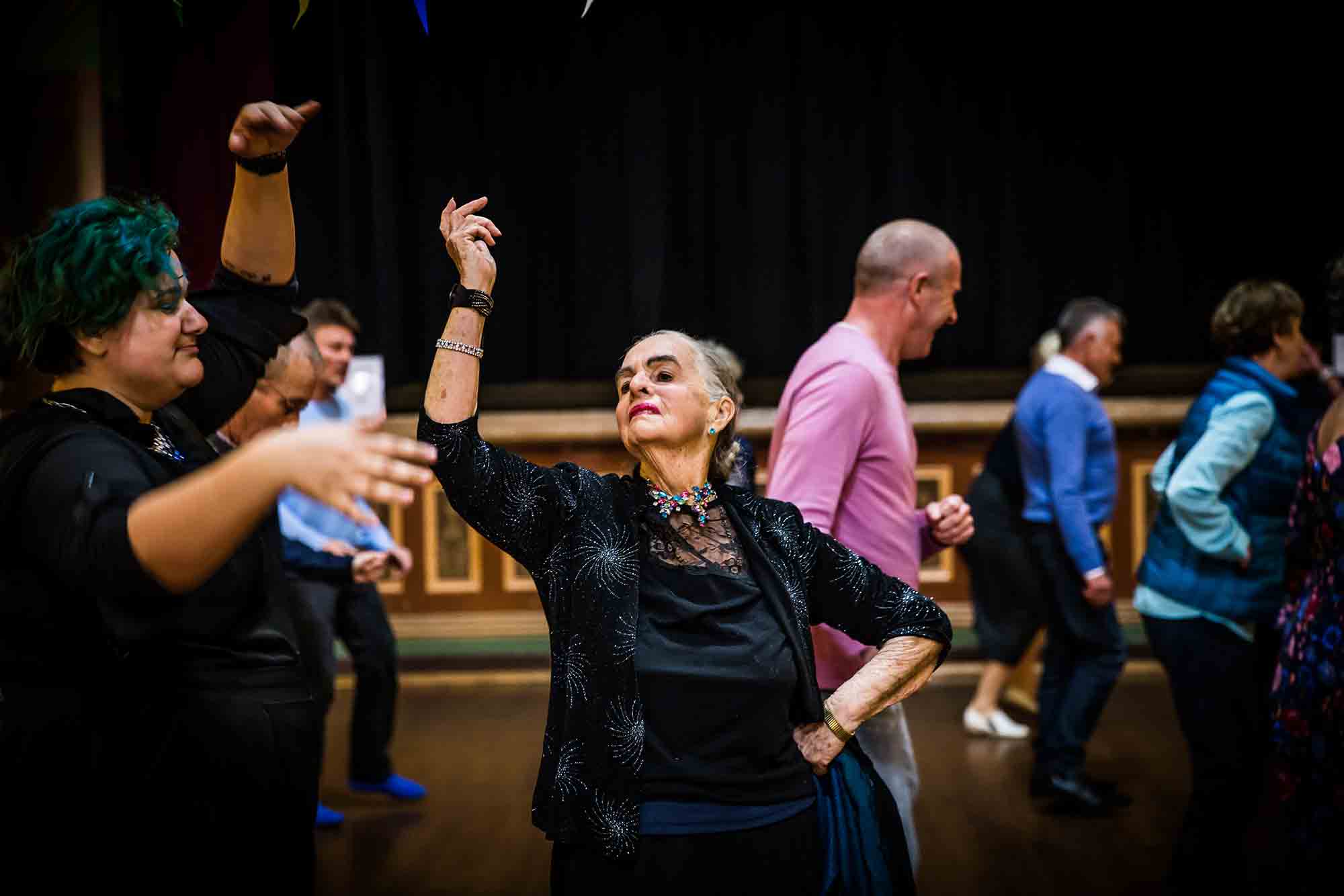
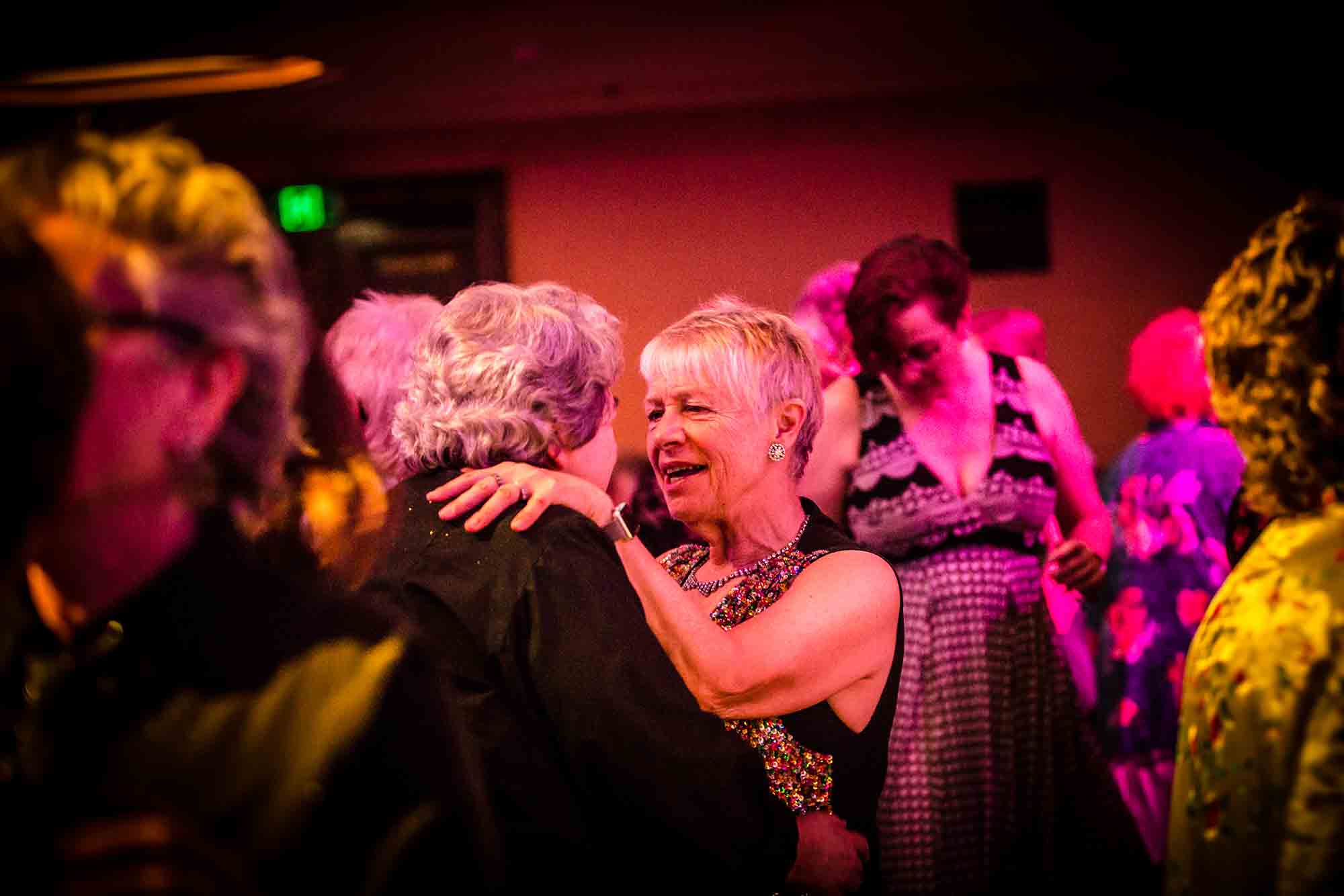
It is all slowly changing: the first LGBTI nursing home opened in Berlin in 2008, and such homes have since sprouted up in places as diverse as Sweden, Spain and Minnesota. An LGBT-friendly residential care project is on the cards for Prahran, in the historical gay area of Greville Street. These are isolated initiatives, however, not underpinned by a structured policy approach. All The Queens Men’s projects are not so much tapping into a niche as raising awareness from scratch.
And raise awareness they have: in October last year, the company’s long-awaited Coming Back Out Ball, a gala celebrating LGBTI elders, attracted worldwide media attention. “We had been planning it for two years,” Meecham says. “Then suddenly Australia was voting on same-sex marriage, and it became the issue in focus.”
The glamorous event took place at Melbourne Town Hall, with no expense spared: a 30-piece orchestra, a rich entertainment program, and a three-course dinner. It was a tender and emotional event, acknowledging a history of pain among undeniable victories. Dressed to the nines, in a suit and high-heeled shoes, Meecham offered the night to the invitees “as a gift in appreciation and respect for all you have done – for fighting for my right to wear these six-inch heels and nail polish.” Later that same night, Indigenous opera singer Deborah Cheetham stood on stage and noted that this was the second time in her life that her basic rights were being decided by a referendum. Attendees later described the night as magical, overwhelming, perfect.
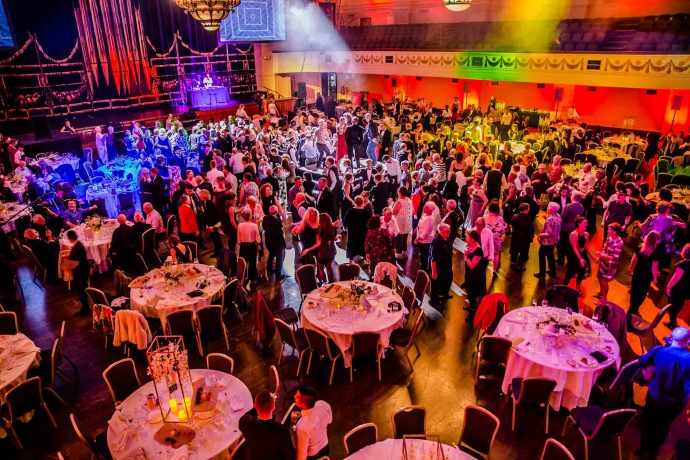
“It had to be very schmick,” Meecham says. “It had to be a big gala, and it had to take place in the Town Hall, it had to reclaim one of the largest civic spaces in Victoria. Had we done it in a small community space, none of the symbolic weight would have been felt. And it had to be free. It had to be a gift.”
It took years of networking to get the event off the ground, during which time Meecham visited nearly every nursing home in Victoria and forged hundreds of face-to-face connections. The company fundraised to pay for everything from lavish flower decorations on every table, to the venue hire and the food. The logic of gift-giving extended to the program. Meecham recalls: “Originally, we thought we would bring audience members on the stage to talk about their experiences, but we realised that people didn’t feel comfortable in the spotlight. We changed the concept, because it all had to be for them.
“And even on the day of the event, Andrew [Westle] received so many phone calls from people who were suddenly terrified at the thought of being seen so publicly. We had to accompany them in person.” He smiles. “But now that we have built trust, the next ball will be different.”
The question of the next Coming Back Out Ball looms large in a community that now has the right to marry, and a new-found visibility. The weeks coming up to the closing of the postal survey saw an unexpected outpouring of support that manifested as tangible signifiers throughout public space: posters and statements of support, rainbow buttons, badges and flags, as well as institutions adding rainbow hues to their logos. The Coming Back Out Ball painted a rainbow with light onto the majestic staircase of Melbourne Town Hall. It all seemed part of a larger societal shift.
Not so much, says Meecham. For all the immensity of their creations – the gowns, the town halls, the armies of volunteers to create safety for participants – his is a tiny independent theatre company, not a dedicated government department. “People think we’re a big organisation,” Meecham laughs, “but it’s just me and my laptop.”
And yet, paradoxically, it is the performance background of its founders that makes All The Queens Men particularly successful at creating services that bring people together. “We know how to put on a show. We are entertainers. We hoped to get people involved through the arts, packaging the social mission behind the glitz and glam of a ‘gala ball’.”
We often speak of the role of arts in fostering creativity and innovation, but projects such as LGBTI Elders Dance Club give pause: could this really be the way to experiment with social service delivery? It remains to be seen whether community organisations can take over The Coming Back Out Ball, whether it transitions into a community service. Meanwhile, every first Sunday of the month, All The Queens Men are showing up at Fitzroy Town Hall on the dot, ensuring that LGBTI elders can dance the day away.
Thank-you to Tristan for taking the time to talk to us at Assemble Papers. This is the first article from ‘Radical Family’, issue #9 of Assemble Papers, which is out now! We look forward to the next iteration of Melbourne Coming Back Out Ball!